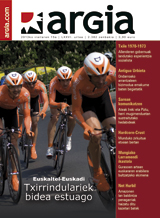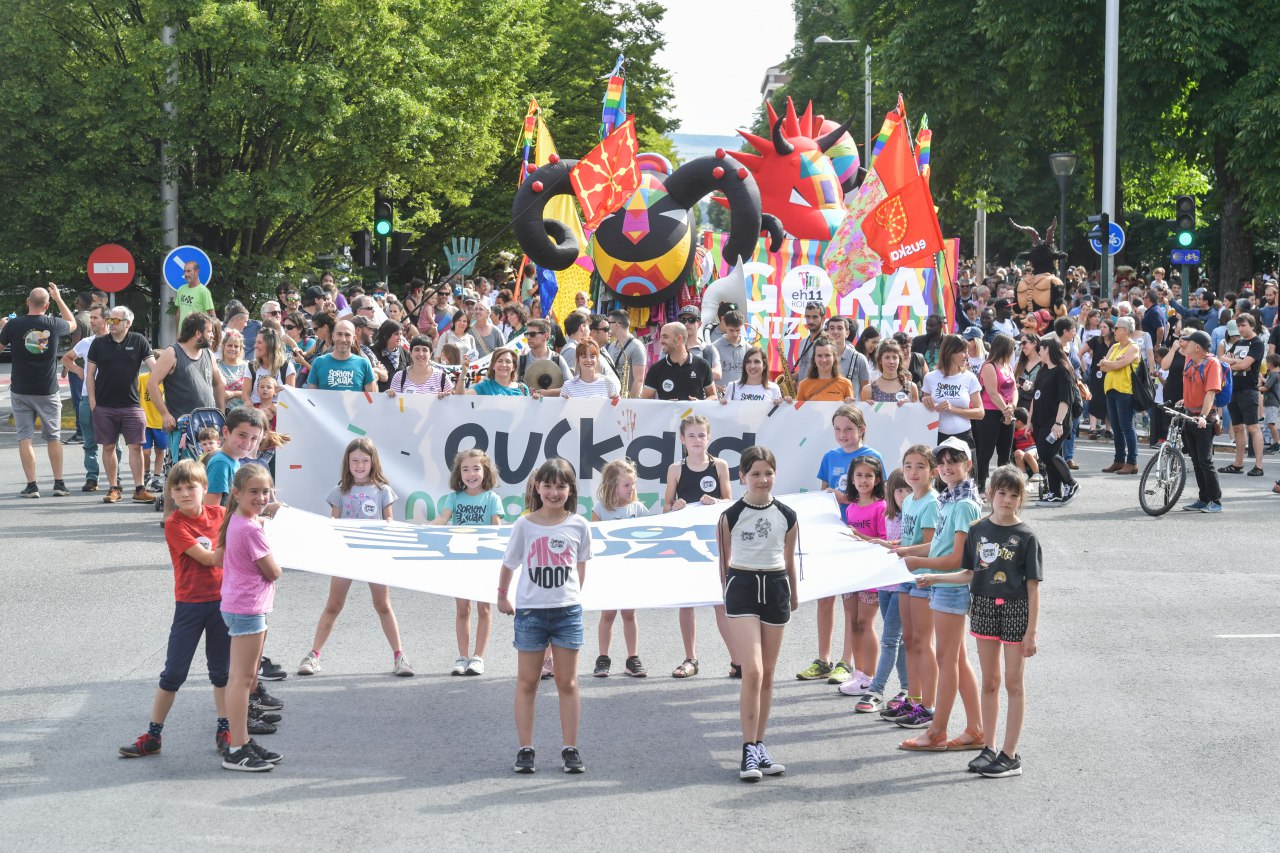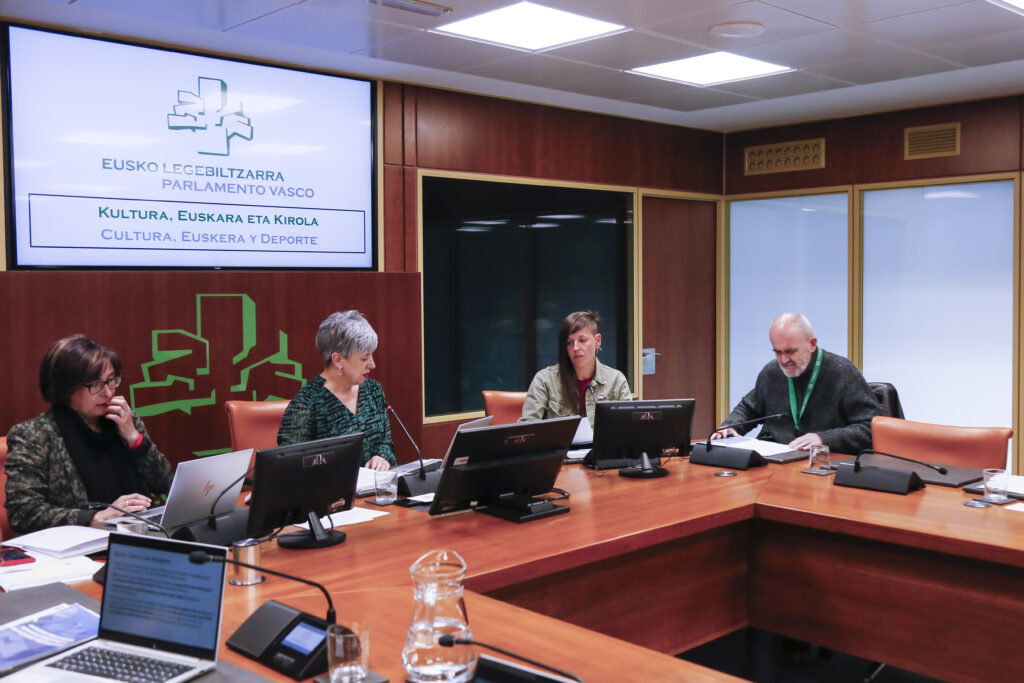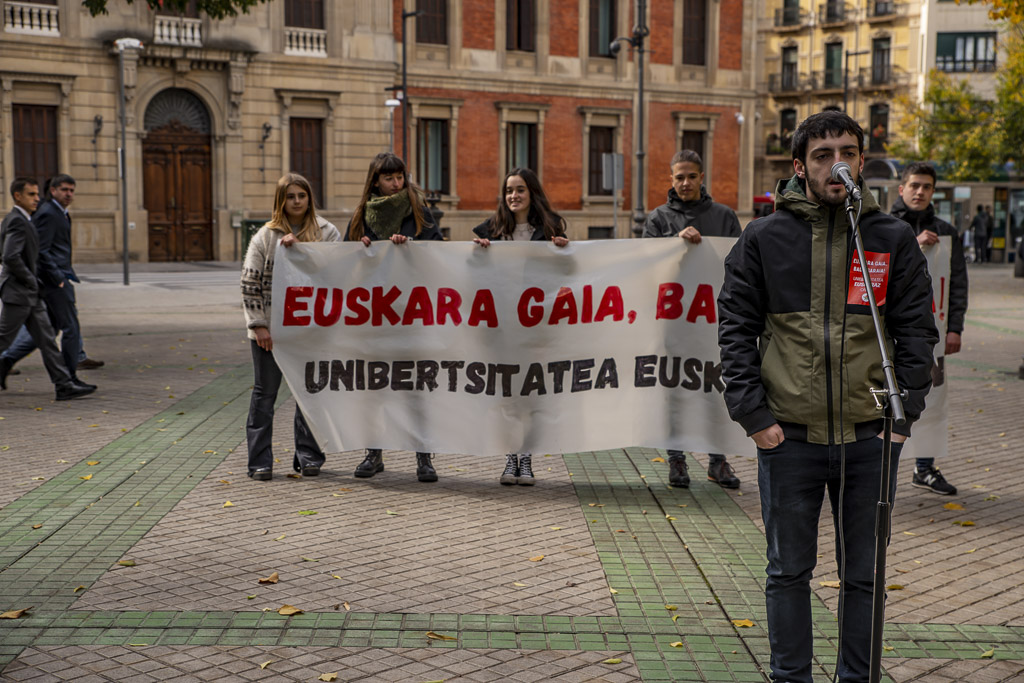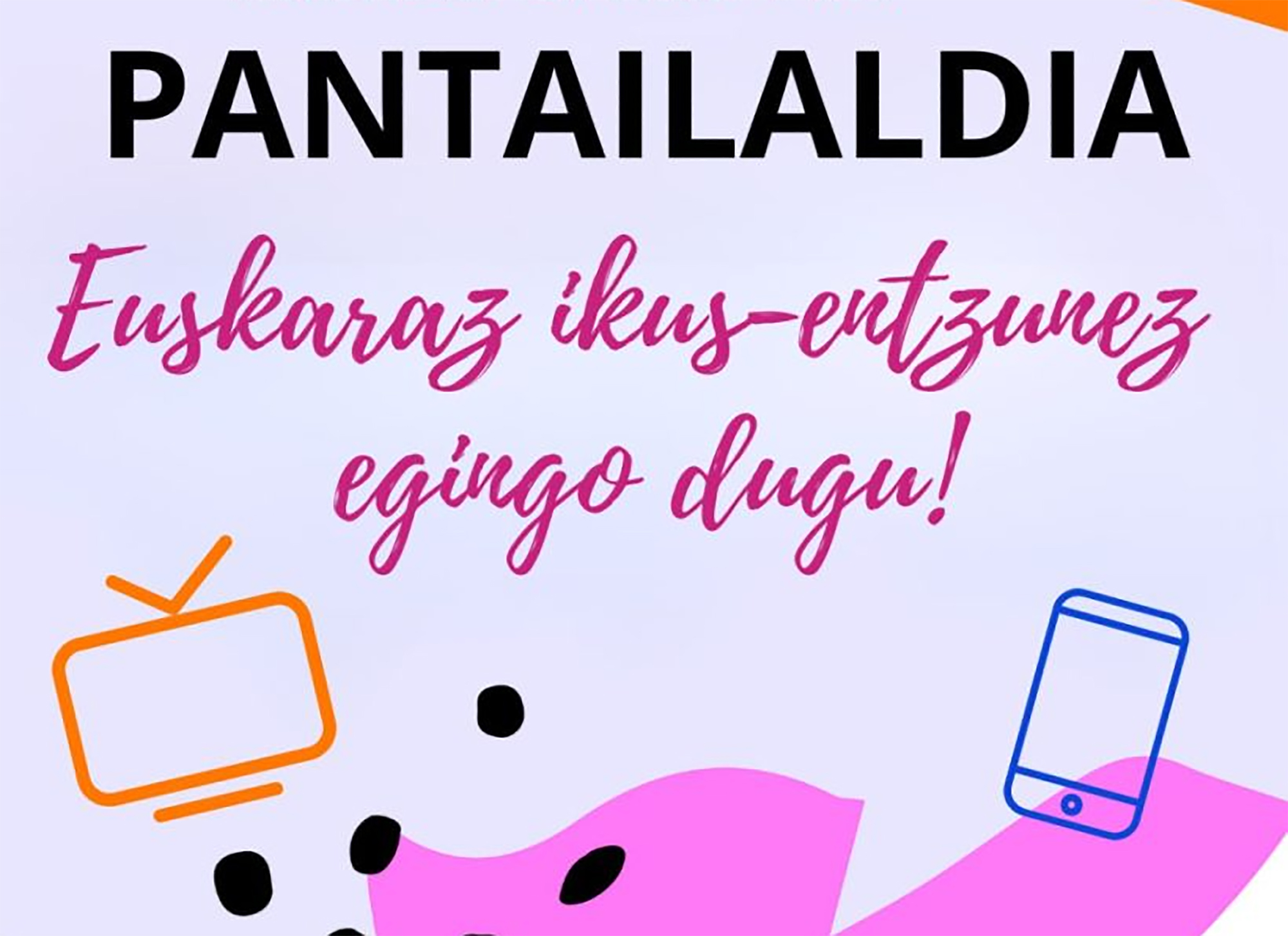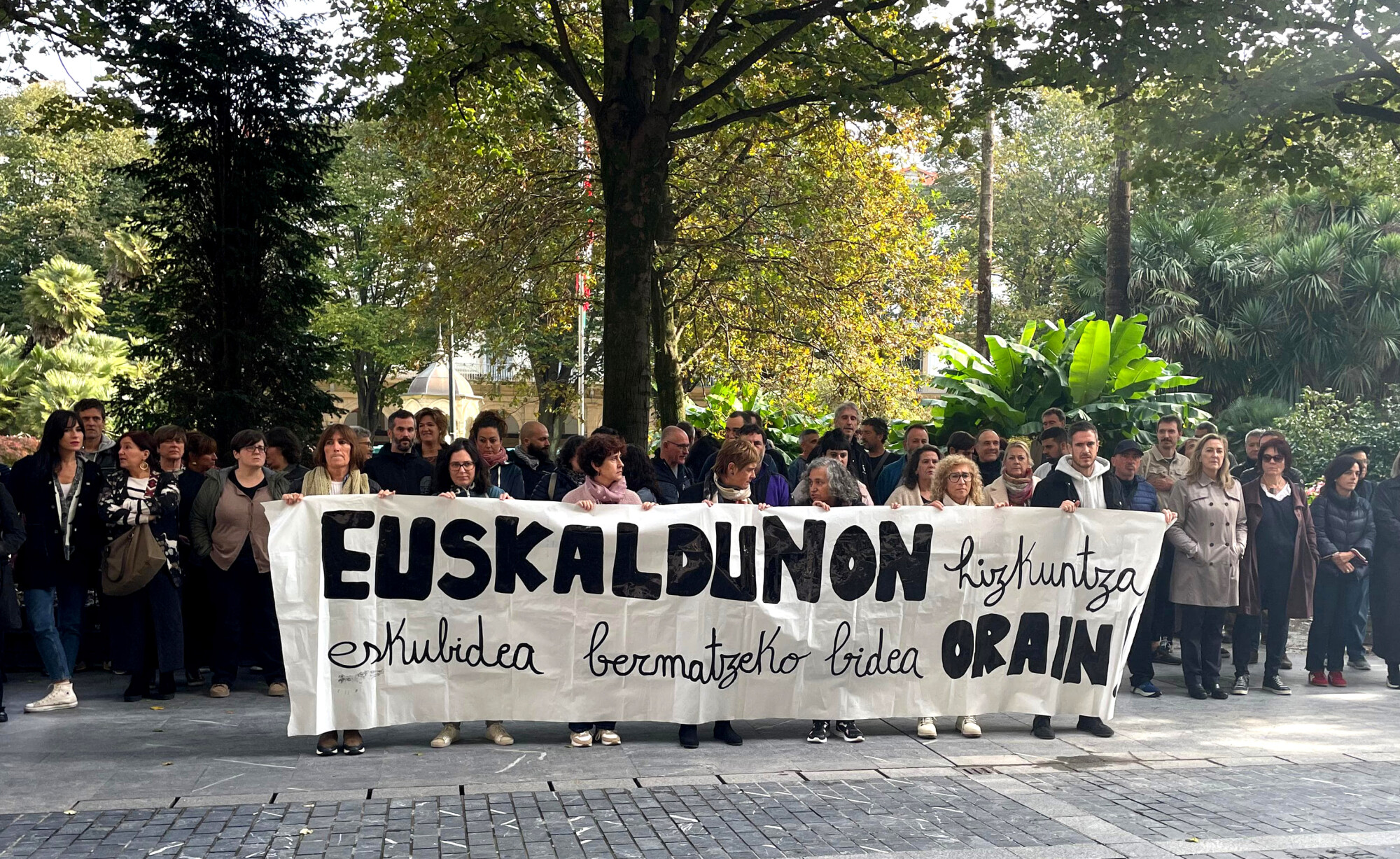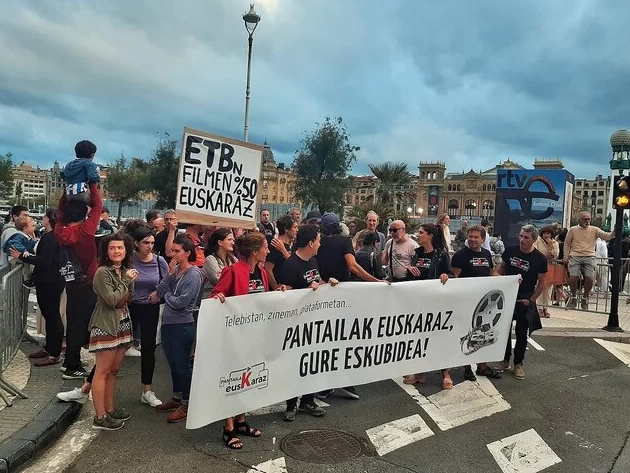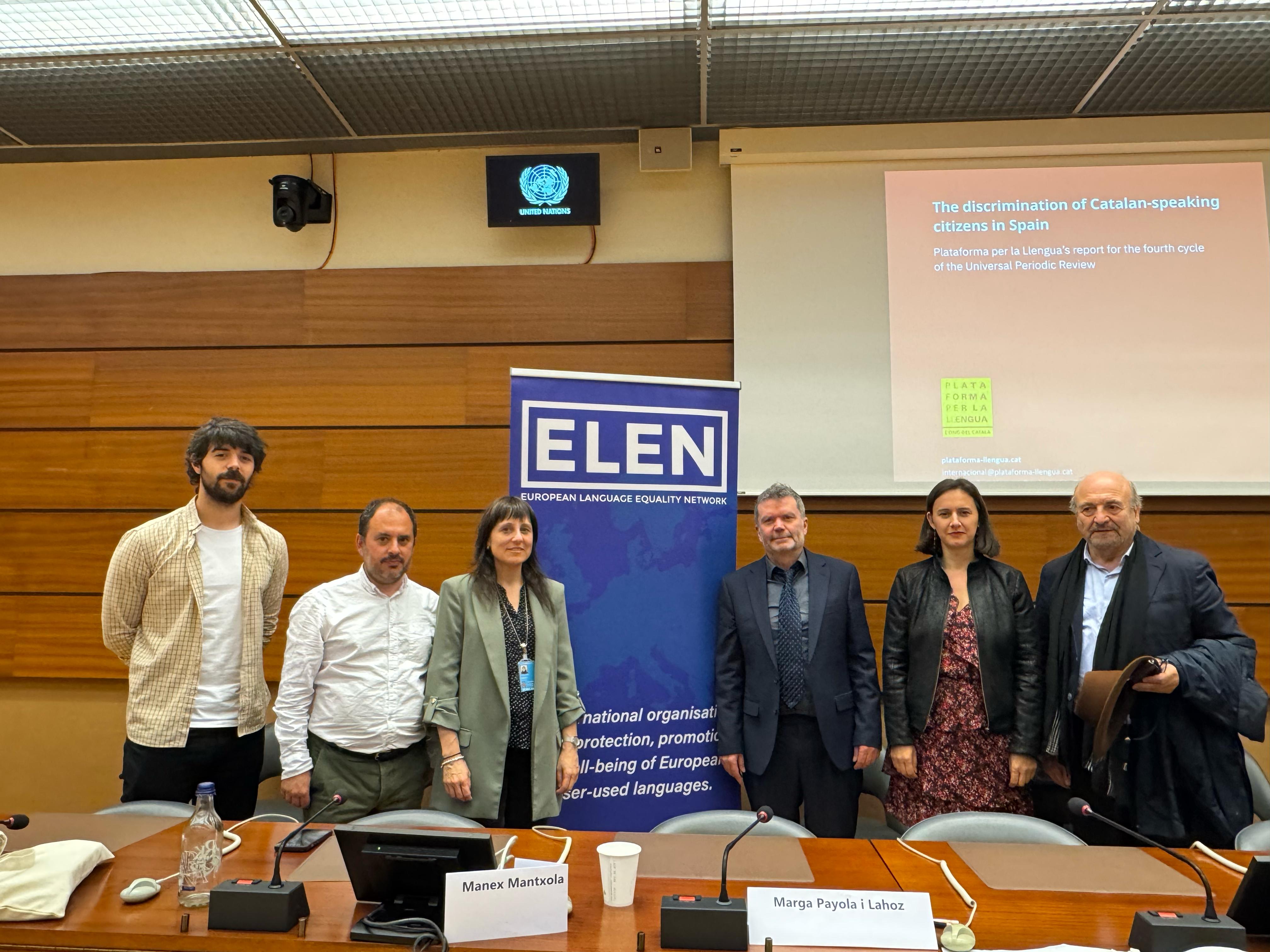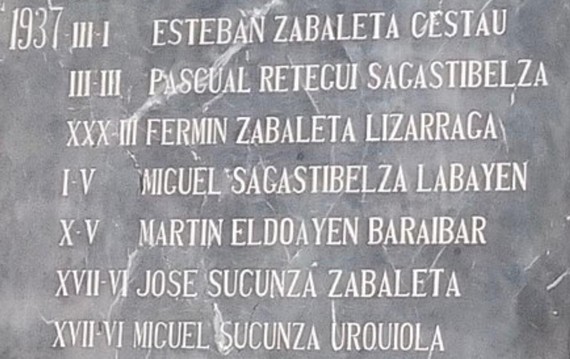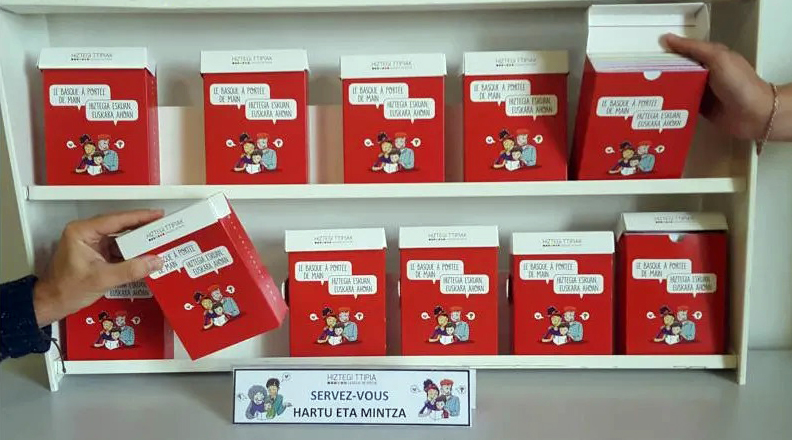The voice of the citizen movement
- In Euskal Herria there have been many and diverse media that have been created on the initiative of the people. As in other times the phenomenon of free radios has spread, the development of the Internet is a stimulus to the rise of popular media in the network. We have taken two examples: Open Doors with Navarra and Piztu with Donostialdea.
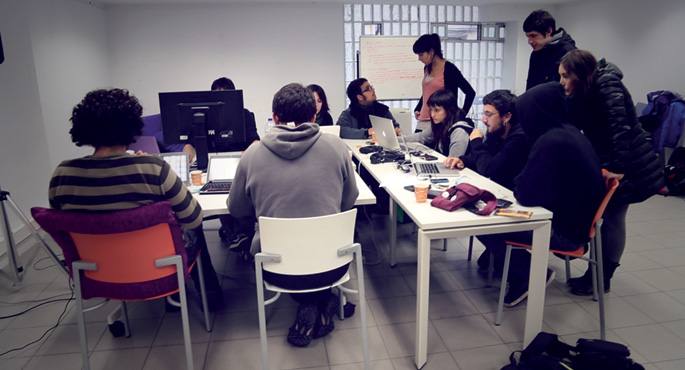
Open Doors, Piztu and other local media have emerged from the same concern, although each one has developed its own model. They recognize that they share many characteristics and that they have as brothers initiatives such as Topatu or the newly disappeared Branka. Atea Zabalik has in his favor what he has learned in his two years of career; Piztu, the freshness of what he has just begun.
Both have a close relationship with the collectives and social actors. According to Piztu Ander Suberbiola, the aim of the project is “to give voice and visibility to popular movements”. The Donostiarras want to promote joint work: “We would like to be an instrument for popular movements and for their members to participate in us.” In this sense, they intend to organize meetings “to know the reality of the agents and try to adapt it to it”.
Miguel Ángel Llamas, alias “Pitu”, is responsible for the web Atea Ireki. As he said, more and more people are working on the street and “this needs its reflection” in the network and in the media. “Ours is a platform to bring to the network what is done on the street, a loudspeaker.” They also exchange working materials with other media and popular movements.
Within the Network, audiovisual media are the protagonists
Suberbiola has recognised that the proliferation of media in the network is directly related to the development of the Internet. It says that the Internet has reversed the logic so far in the field of communication: “Our project and similar projects could hardly move forward without the Internet, it has been an important step in the democratization of information and communication.” However, it does not believe that the use of the street or walls should be stopped. “The network should not replace existing supports and tools, but should add new possibilities.”
In the public media of the network, the primacy of audiovisual content is common. Pitu explained that Internet users generally look for videos and that this type of content is the most successful. However, Atea Iri tries to offer increasingly elaborate texts. The members of Piztu have the same vision: “For the time being, audiovisuals are the starting point, because we believe it is the most powerful channel of communication, but we are open to any other option.”
Competition no, the alternative yes
While popular initiative networking projects are making their way, traditional media are trying to adapt to the unstable world of the Internet and social networks. In any case, Pito and Suberbiola do not believe that they should make any competition to television or traditional newspapers, according to the same source. Doors I, for example, exchange content with other media. “We have tried to foster collaboration, both at the level of Navarre and with the media throughout the Basque Country.” To do this, it is essential to decide which news we treat and which we do not. “If something happens in Pamplona or Navarra, we should be the first to report it, but, for example, if you publish an official statement, it is not our job to divulge it.”
Suberbiola also considers collaboration and complementarity between the media, and even more so among those with fewer resources, to be essential. Piztu's team is studying with great attention the scope of their work, as they do not want to repeat the work done by Irutxuloko Hitza. “Our mission is to fill the gaps.” In this sense, they want to be “the alternative to some powerful media in Donostia-San Sebastián”.
Turn it on. First steps
Piztu is a popular media that is still undergoing training. A year ago, the idea of starting the project began, when four people reflected on communication. “We saw that there was a gap in the field of communication, that the voice and opinion of all citizens in the media was not reflected.” However, Suberbiola believes that if the project has moved forward it is because there are many people who have the same concern: “If we hadn’t come together and start with this, surely others would have done it.” In March they opened a blog with the aim of spreading their ideas on the net. At the first open assembly in the same month, fifteen people met, and since then they met weekly.
In addition to these fifteen, a network of citizens who are willing to carry out sporadic work in the workplace has also been set up. “A lot of people doing little things, that’s our challenge.” Although decisions are taken in a weekly assembly, they have been divided into smaller groups, “because there are things that cannot be realized among all”. As for the members, the majority are young, but there are also people over 40. All participants work voluntarily and, for the time being, do not intend to hire anyone at a salary.
The content created is published both on the blog itsasargia.wordpress.com and on social networks, pending the development of the final website. They have mainly carried out audiovisual works. The group followed up on what was happening in Donostia-San Sebastian during the May 30 strike, and they were "very happy" with the result. In addition, a series of video interviews are being developed Lights and Shadows of the Crisis, in which citizens of different ages and circumstances explain how the economic crisis has affected their lives.
The website, which also wants to be ready by the end of October, will also be based on citizen participation. “We want to create a large network with citizens and social partners. The opinion section will be completed through blogs and whoever wants to create yours.” However, it is not the only function or challenge that the website has for the future, but at the end of the year it plans to organize a conference to reflect on communication.
Open doors. Successful path
Atea Irekia started in 2011, but it is the continuation of a previous project: Apurtu.org of the medium. This information, which referred to repression, was created in 2007, and even then, it was based on audiovisual works. In Pitu’s words, “they pioneered” the support, as they launched an informative and a TV channel via LiveStream. However, they were faced with difficulties, and not of all kinds. In 2011, the National High Court closed the website of the National High Court when it considered it to be an instrument of communication from Askatasuna. Four of the members were arrested and, following the sentence, one of them entered prison, according to the same source. Despite the fact that the Apurtu project was suspended, a group of journalists and citizens created Atea Ireki as a solidarity initiative against the closure of the website.
Pitu pointed out that, since 2011, the website has become “well known”. For example, the 12 audiovisuals created in the Sanfermines made a total of 400,000 visits, including a video by Atea Irekia showing how two young people hooked with a beard hung the ikurrina in the sucking of the festivities of San Fermín de Pamplona. If someone wants to find out about something that has happened in Navarre, Pito says that he is going to his website. They also receive more and more e-mail with the content and news generated by others. “At one time we fought so that people could send content, but now we also have to reject a few. we have to do.”
As for the work team, two people are responsible for the daily updating of the web and five others work in the field of the video industry. The heads of the web are in charge of holding meetings with the agents and coordinating the work of others. However, they do not devote many hours to the decision of the structure. “We often spend too much time laying the foundations of a project, doing nothing. In our case, practice has taught us what we are and what our path is.”
The Open Doors project consists of two areas of work, the web and audiovisual production. In this second area, they perform paid work for different groups and movements. Through this money, the two people responsible get “an amount that barely survives”, which allows them to dedicate the time they need to the web. In fact, they often have to work between 10 and 14 hours a day.
In the same vein, Pitu says that the success of the documentary trilogy on corruption in Navarre, including that of the Can, has allowed the purchase of resources to carry out the initiatives they have in mind. However, in the absence of a fixed source of income, the main challenge of the group is to create a production company and stabilize it. Looking to the future, they want to try to reach the whole of Navarra: “We live in Pamplona and it is more difficult to reach other areas. That’s why we want to create a broader citizen network and have a closer relationship with popular movements, so that we can make known all the information that is of interest.”
Euskaraldiaren atarian, beste behin, Pantailaldia egingo da. Maiatzaren 6tik 15era iraungo du, eta euskarazko ikus-entzunezkoen kontsumoa sustatzea izango da helburua.
Baina non gaude, non dago euskara ikus-entzunezkoen mundu zabalean, nora goaz? Zein hutsune, zein erronka... [+]









